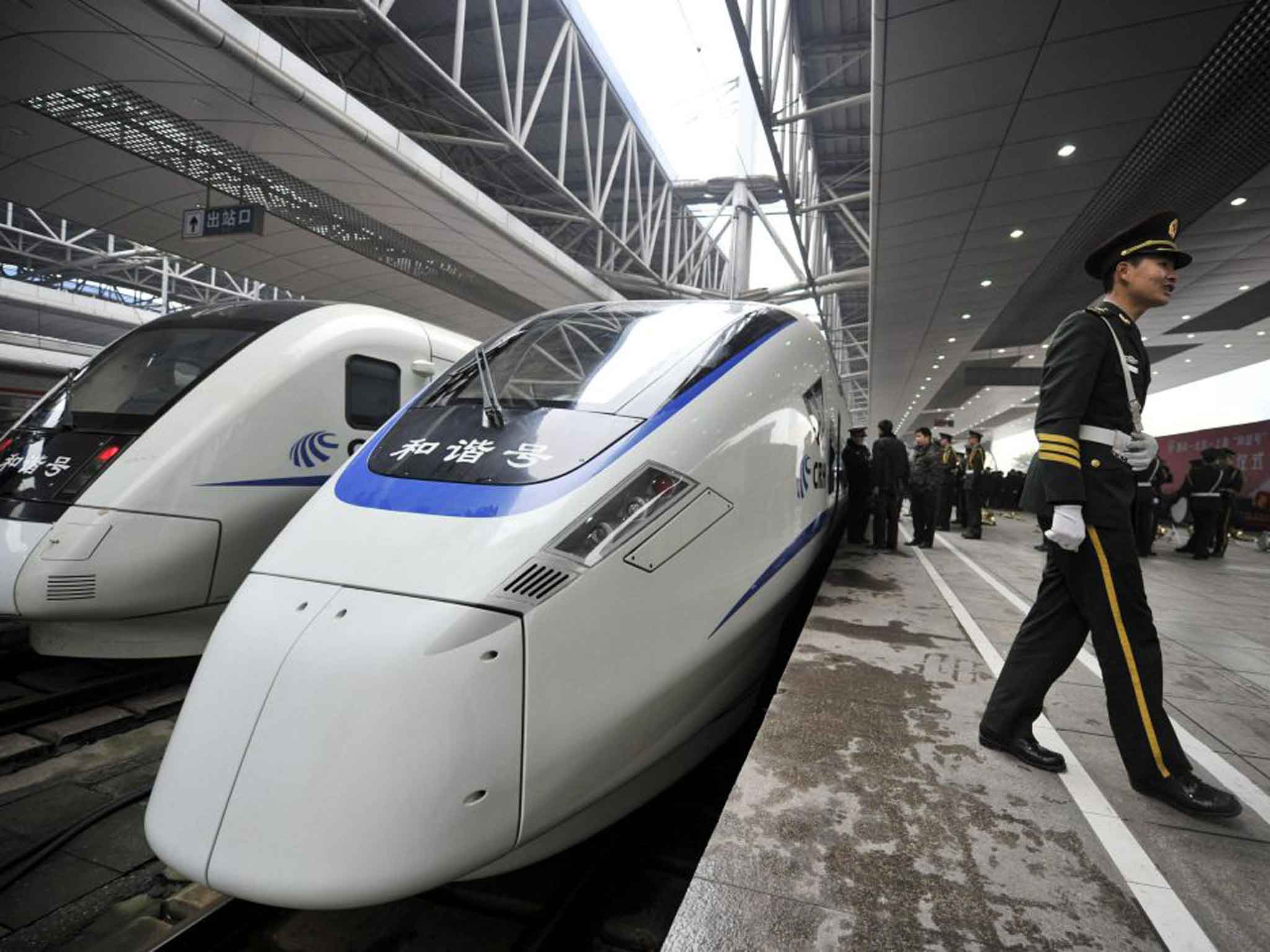Chinese parents in mass suicide bid after railway company fails to follow through on promise of jobs for their children
Twenty-one people from north-east China tried to kill themselves

Twenty-one people from north-east China attempted a public mass suicide in Beijing after a railway company failed to follow through on a promise of jobs for their children.
The extreme act, carried out in broad daylight on Tuesday, has drawn attention to the desperate plight of job-seekers in a region that has suffered from chronic unemployment following reforms to state-owned industries.
The attempt came about after a petition from the group demanding that the Harbin Railway Bureau provide the highly valued public service jobs it had promised their children came to nothing. All wearing the same white T-shirts with the words “Harbin Railway Bureau” printed on their chests, the petitioners attempted suicide by ingesting a poisonous substance near the Beijing West Railway Station.
“They lay on the ground... They looked in pain. Their vomit was scattered around,” an eyewitness, whose surname was Li, told the Global Times newspaper.
The people from Heilongjiang province were reportedly promised jobs for their children on the railway. Such civil service jobs are referred to as an “iron rice bowl” – they are thought to provide security and prestige.
The parents were reportedly told by the Harbin Railway Bureau that all that their sons had to do to get a job with the company was to join the People’s Liberation Army.
None of the employees’ offspring was university graduates so they had to earn status in a different way. One of these routes is by serving in the PLA.
When the promised jobs did not materialise, the families complained. Their petitions were not heard at a local level, so they went nationwide.
Petitioning is an ancient system dating from the imperial age in China, where people who felt they were being abused by the system turned to the emperor for help, travelling to Beijing to petition for the assistance of the supreme authority.
The tradition has continued in the Communist era, but in the last few years it has become a much more complicated practice.
Any petitioners seen near Tiananmen Square are rounded up and often jailed in “petitioners’ hotels”, which are basically detention centres referred to as “black jails”.
It used to be that petitioners were heard during the National People’s Congress, China’s annual parliament, but fear of social unrest means those days are gone. During big public gatherings like the NPC, there is a ban on petitioners coming to the capital, and in the run-up to major events such as the Olympics in 2008, there were roadblocks stopping people coming into the city to air their grievances.
After their suicide attempt, the petitioners were escorted by police to the Fuxing Hospital of Capital Medical University and the General Hospital of the Ministry of Water Resources.
Nine petitioners were released in the afternoon after treatment, a press officer from the hospital told the Global Times.
It is unknown how many petitioners remain there, as the hospital declined to comment.
Han Meiying, one of the pesticide drinkers, told Luo Jingyun, a Beijing-based reporter for the Global Times, that they were transferred to a detention centre in the city’s Haidian district on Wednesday and would stay there for at least five days.
The “iron rice bowl” idea has been under attack for decades now as China opens up its economy to capitalism, but it is still a valued option for many young people who don’t make it to university in particular.
Yang Yansui, a professor of social security at Tsinghua University, told the Global Times: “The reality is that no organisation can offer that many jobs, even if they have promised. It’s difficult enough for college graduates to finds jobs nowadays.
“It would only be harder for veterans, who are usually older and demand better pay.”
Subscribe to Independent Premium to bookmark this article
Want to bookmark your favourite articles and stories to read or reference later? Start your Independent Premium subscription today.

Join our commenting forum
Join thought-provoking conversations, follow other Independent readers and see their replies